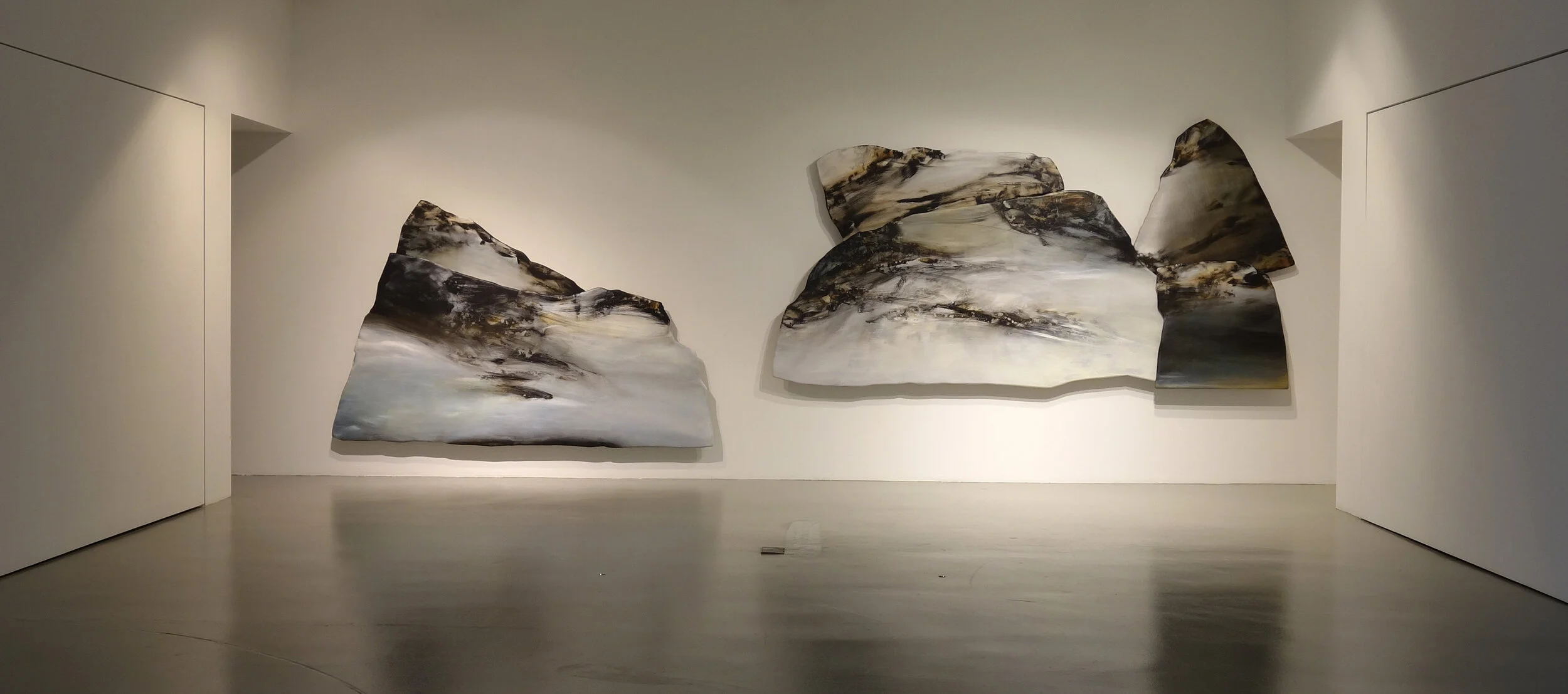―
Curvilinear wood pieces, over which the artist has painted, are composed and mounted on the wall as one immersive landscape. Each of these wood pieces takes an organic form, reminiscent of ‘mountains.’ In Chinese landscape painting, the emptiness left vacant on the paper is as much a vital part of the composition. Here, the wall takes the place of the “white of the paper,” playing a key compositional role in engaging how the painted forms speak to one another. The supporting wall has thus been recast into an active backdrop, playing with space and a heightened sense of immersion. Emptiness and form are no longer separate qualities or states, but are structurally correlated: each exists only by virtue of the other.
THE BLUE OF DISTANCE, 2015, acrylic on wood, dimensions variable, installation view, FOST Gallery
THE BLUE OF DISTANCE (detail), 2015, acrylic on wood
THE BLUE OF DISTANCE (detail), 2015, acrylic on wood
QI, 2017, acrylic on wood, dimensions variable, installation view, Art Basel Hong Kong
These ‘mountainous’ wood shapes bear countless forms with no single one predominating, as every piece is modular and can be arranged and rearranged into varying landscapes according to the space they occupy. And like a Chinese landscape, it is a landscape that dissolves any point of view.
PRESENCE/ABSENCE, 2018, acrylic on wood, dimensions variable
PRESENCE/ABSENCE (detail), 2018, acrylic on wood







